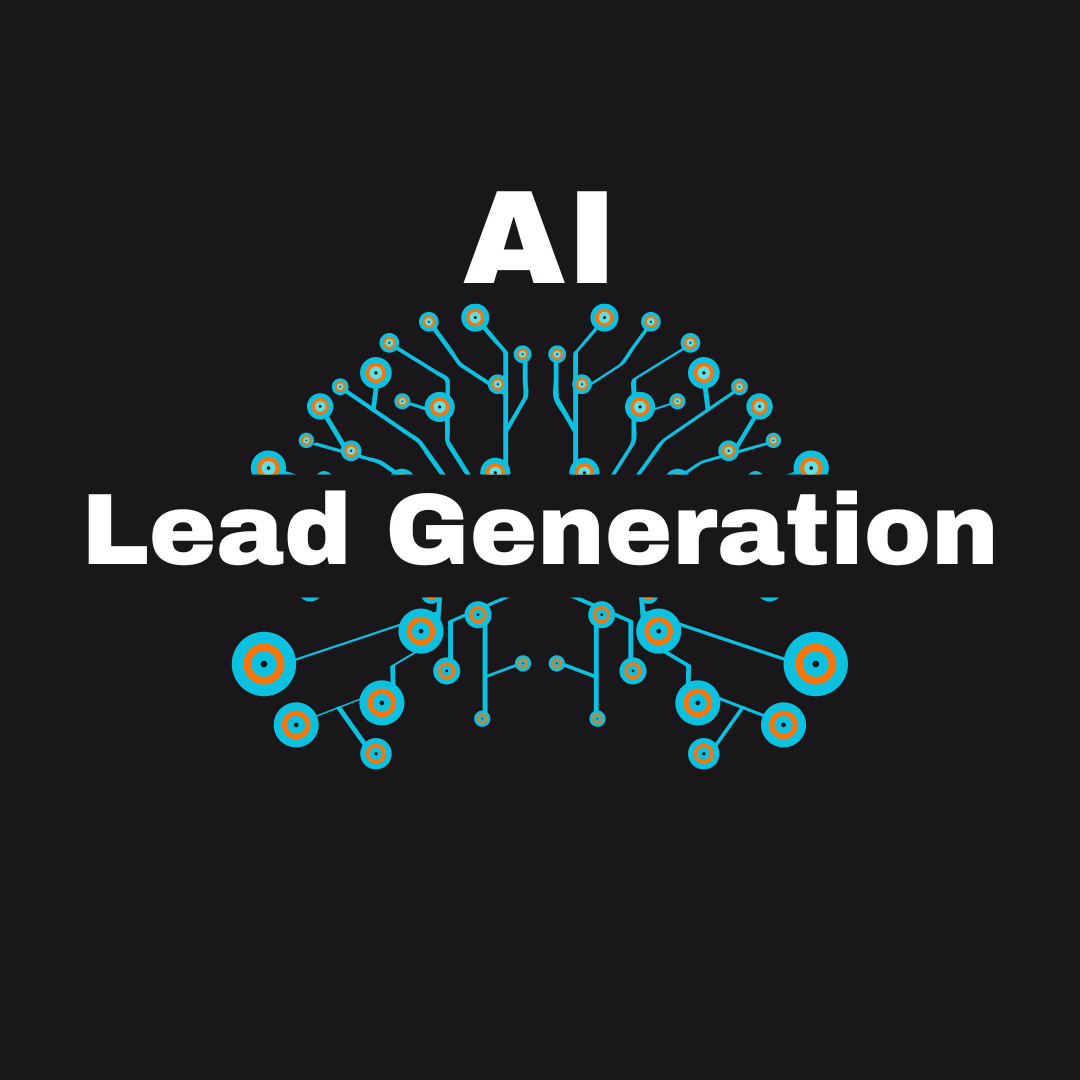What is AI-Powered Lead Scoring & How Does It Work?
Key Takeaways:
- AI lead scoring uses machine learning to rank leads based on their likelihood to become customers
- Traditional scoring uses fixed rules; AI scoring learns and adapts automatically
- AI systems analyze data from websites, emails, CRM, and social media to score leads
- Companies using AI lead scoring see 30-40% higher conversion rates on average
- AI models continuously update as new data comes in, keeping scores accurate over time
- Sales teams using AI scoring focus on the best leads first, saving time and closing more deals
- Implementation typically takes 4-6 weeks with positive ROI within 3 months
What is AI-Powered Lead Scoring?
Ever wondered how some sales teams always seem to know which leads to call first? They’re probably using AI lead scoring. It’s like having a super smart helper that tells you which potential customers are most likely to buy from you.
I’ve worked with sales teams for over 15 years, and I still remember how we used to pick leads to call – basically by gut feeling or whoever came in most recently. What a waste of time that was! Now, AI tools look at tons of info about each lead and give them a score, kinda like a test grade that shows how good a fit they are for your business.
The big difference between old-school lead scoring and AI scoring is that AI keeps learning. Regular scoring has fixed rules like “give 10 points if they’re a manager.” AI scoring figures out its own rules by studying your past customers, and it changes those rules when it notices new patterns. Way smarter!

How AI Lead Scoring Actually Works
So how does this AI magic happen? It’s not as complicated as you might think. The system collects info, cleans it up, learns from past sales, and then scores new leads. Let me break it down into simple steps.
1. Gathering All the Data
AI systems are data hungry. They collect info from:
- Your website (pages visited, time spent, downloads)
- Email campaigns (opens, clicks, replies)
- CRM data (company size, job titles, location)
- Social media (engagement with your content)
- Sales interactions (calls, meetings, proposals)
One client of mine was shocked when we showed them how much data they already had. “We’ve been sitting on a gold mine!” they said. And they were right.
2. Cleaning Up the Mess
Raw data is usually messy. AI systems need to:
- Remove duplicate leads
- Fix incorrect information
- Fill in missing details
- Convert different types of data into usable formats
This cleaning step is super important. As we say in the data world, “garbage in, garbage out.” I once worked with a company whose lead scoring was totally wrong because they had duplicate entries for half their contacts!
3. Teaching the AI System
This is where it gets cool. The AI looks at all your past leads and what happened with them:
- Which ones became customers?
- Which ones ghosted you?
- What did the good leads have in common?
- What patterns showed up in leads that never bought?
The system creates a model that can predict which new leads will most likely convert based on these patterns. It’s like teaching a new sales rep by showing them examples of good and bad leads, except the AI never forgets and can spot tiny patterns humans miss.
4. Scoring Each Lead
Now the trained AI gives each new lead a score, usually from 0-100:
- Higher scores (like 80-100) mean “call these people right now!”
- Medium scores (40-79) mean “nurture these leads with more content”
- Lower scores (0-39) mean “keep these on the back burner”
Here’s a simple example of how points might add up:
| Lead Action or Trait | Points |
|---|---|
| C-level job title | 25 |
| Downloaded pricing PDF | 30 |
| Visited website 5+ times | 15 |
| Opened 3+ emails | 10 |
| Company size >500 employees | 20 |
A lead with all these would score 100 points and be ready for sales contact!
5. Getting Smarter Over Time
The coolest part? AI lead scoring gets better the more you use it. As new leads come in and either convert or don’t, the system updates its understanding:
- If certain behaviors start predicting sales better, they get more points
- If something stops being a good predictor, it gets fewer points
- If new patterns emerge, the system spots them automatically
I helped a software company implement AI scoring last year. In the first month, it was good but not amazing. By month three, it was identifying hot leads with 88% accuracy – way better than their sales team could do alone.
The Big Benefits of AI Lead Scoring
Why should you care about AI lead scoring? Because it solves real problems that cost companies money and missed opportunities every day.
More Accurate Than Humans
Let’s face it – humans are biased. We might favor leads from industries we know better or ignore promising leads because of past experiences. AI doesn’t have these biases.
One marketing director I worked with insisted that leads from a certain industry were always low quality. The AI system proved him wrong by showing that a specific segment within that industry actually converted better than average! Without AI, they would have kept ignoring good leads.
Adapts to Market Changes
Markets change. Buyer behaviors shift. Traditional scoring systems don’t keep up, but AI systems do.
During the pandemic, a client’s AI scoring system quickly noticed that their B2B leads were suddenly responding better to educational content than discount offers – completely the opposite of pre-pandemic patterns. Their static lead scoring would have missed this shift entirely.
Helps Sales Teams Focus
Sales reps have limited time. AI lead scoring tells them exactly who to call first.
A sales team I trained was spending 60% of their time on leads that almost never converted. After implementing AI lead scoring, they flipped this ratio and started spending 70% of their time on high-potential leads. Their sales jumped 45% with the exact same team size.
Saves Tons of Time
Manual lead scoring takes forever to set up and maintain. AI does it automatically.
One marketing manager told me she used to spend two full days every month tweaking their manual lead scoring rules. With AI, that time went back to actual marketing work, and the scoring got better, not worse.
Spots Hidden Patterns
AI can find connections in data that humans would never notice.
For example, one AI system discovered that leads who visited a specific help article and then the pricing page within 48 hours were extremely likely to purchase – something nobody in the company had realized. These kinds of insights are gold for sales teams.
Mastering AI Lead Scoring: How to Boost Conversion Rates
Want to get the most from AI lead scoring? I’ve helped dozens of companies implement these systems, and the ones who see the biggest gains follow these practices:
Use Quality Data From Multiple Sources
The best AI scoring uses data from many places:
- Website analytics
- Marketing automation
- CRM records
- Social media
- Sales interactions
- Industry databases
Don’t just rely on basic contact info. I worked with a B2B company that added LinkedIn data to their scoring model and immediately saw a 24% improvement in accuracy.
Balance Engagement and Fit Scoring
Smart companies score leads on two main factors:
- Engagement – How interested is this lead in your company?
- Fit – How well does this lead match your ideal customer profile?
A high-fit lead with low engagement might need nurturing. A high-engagement lead with low fit might be researching for a different reason. The magic happens when you find high scores in both.
Align Marketing and Sales Teams
AI scoring works best when everyone agrees on what makes a good lead.
I once worked with a company where marketing thought job title was most important, while sales cared more about company size. Their AI system was caught in the middle with conflicting signals! We got both teams in a room to agree on lead criteria, and their conversion rates jumped within weeks.
Start Simple, Then Add Complexity
The best implementations begin with basic models and add sophistication over time.
A tech startup I advised tried to build an ultra-complex scoring model from day one. It was a mess. We scrapped it and started with just 5 key variables. Once that was working well, we gradually added more factors. This approach gets you results faster and builds confidence in the system.
Test and Validate Continuously
Smart companies regularly check if their scoring is actually working:
- Compare conversion rates between score ranges
- Track if high-scored leads actually close faster
- Ask sales reps if the scores match their experience
One client discovered their “hot leads” were only converting at 2%. We dug into the data and found their AI was overvaluing certain website behaviors. After fixing this, conversion rates for hot leads jumped to 23%.
How to Qualify Leads 5x Faster with AI-Driven Processes
AI lead scoring is just the start. The real magic happens when you connect it to your entire lead qualification process.
Automated Initial Outreach
Top companies use AI scoring to trigger the right first contact:
- High-scoring leads get immediate sales calls
- Medium-scoring leads receive personalized emails
- Low-scoring leads enter nurturing campaigns
A software company I worked with set up automated email sequences tied to their AI scores. Their sales team stopped wasting time on cold leads and focused only on warm ones, leading to 32% more demos booked with the same team size.
Smart Lead Routing
AI can make sure leads go to the right sales rep based on:
- Product interest
- Industry expertise
- Territory assignment
- Rep capacity and performance
- Language or cultural fit
One large sales team struggled with lead distribution until we implemented AI routing. Conversion rates improved 28% simply because leads were matched with the most appropriate reps.
Intelligent Qualification Questions
AI can suggest the best qualification questions based on a lead’s profile and score:
- Different questions for different industries
- Simplified questions for highly engaged leads
- More detailed questions for leads showing specific interests
I helped a consulting firm create qualification workflows that adapted based on AI scoring. Their sales cycle shortened by 40% because they stopped asking irrelevant questions and focused on what mattered to each lead.
Real-Time Sales Intelligence
The best systems provide sales reps with AI insights during calls:
- Lead score and why they scored that way
- Recent content the lead has engaged with
- Questions the lead is likely to ask
- Objections they might raise
- Products they’re most likely to be interested in
A rep once told me, “It’s like having a sales coach whispering in my ear during every call.” His close rate increased by 35% after implementing these real-time insights.
Predicting Your Next Big Client with AI Lead Scoring
The ultimate goal of AI lead scoring isn’t just to rate current leads – it’s to predict future opportunities before they even become formal leads.
Identifying Early Interest Signals
Advanced AI systems spot early buying signals like:
- Increased website visits from specific companies
- Engagement pattern changes
- Shifts in content consumption
- Social media mentions and interactions
A manufacturing company I worked with set up AI prediction tools that flagged when companies started researching topics related to their products. Their sales team started reaching out at the perfect moment – early in the buying process but after interest had developed.
Account-Based Predictions
For B2B companies, AI can score entire accounts, not just individual leads:
- Combine signals from multiple contacts
- Track engagement across departments
- Monitor buying cycle indicators
- Predict expansion opportunities within existing customers
One enterprise software company used account-based scoring to identify cross-sell opportunities within their customer base. This generated $2.3 million in additional revenue in just six months from accounts they already had!
Buying Timeline Predictions
Advanced AI doesn’t just tell you who might buy – it suggests when:
- Which leads are in active buying cycles
- Who’s still in research mode
- When stalled deals might reactivate
- Optimal times for follow-up
A real estate technology company used timeline predictions to perfectly time their outreach. Their close rate on enterprise deals increased by 47% because they stopped pushing too early or following up too late.
Churn Prevention
The same AI that predicts new customers can also spot at-risk existing ones:
- Engagement drops
- Support ticket patterns
- Usage changes
- Competitor research signals
One SaaS company I advised was losing 18% of customers annually until they implemented AI scoring for retention. They now identify at-risk customers with 76% accuracy and have cut churn almost in half.
Top AI Lead Generation Tools for 2024
Ready to implement AI lead scoring? Here are some of the best tools to consider.
All-in-One AI Lead Generation Platforms
These platforms offer comprehensive lead gen with built-in scoring:
- HubSpot
- Marketo
- Salesforce Einstein
- ZoomInfo
- 6sense
I’ve implemented all of these and each has strengths. For example, Salesforce Einstein is excellent for companies already deep in the Salesforce ecosystem, while ZoomInfo has the best company data for B2B.
Specialized AI Scoring Tools
These tools focus specifically on AI-powered scoring:
- MadKudu
- Leadfeeder
- Infer
- Lift AI
- Leadspace
A midsize B2B company I worked with chose MadKudu because it integrated well with their tech stack and provided excellent transparency into how scores were calculated.
Data Enhancement Tools
These help provide better data for more accurate scoring:
- Clearbit
- ZoomInfo
- InsideView
- Bombora
- LinkedIn Sales Navigator
One client saw their lead scoring accuracy jump 33% after adding Bombora’s intent data, which shows when companies are researching topics related to their products.
Comparison of Leading Tools
| Tool | Best For | Starting Price | Implementation Complexity |
|---|---|---|---|
| HubSpot | SMBs using HubSpot CRM | $800/month | Medium |
| Salesforce Einstein | Enterprise Salesforce users | Custom pricing | High |
| MadKudu | Companies wanting score transparency | $1,000/month | Medium |
| Lift AI | Website visitor conversion | $2,000/month | Low |
| ZoomInfo | B2B with large prospect lists | Custom pricing | Medium |
I generally recommend starting with tools that integrate with your existing stack. One client wanted to switch CRMs just to get better lead scoring, which was like buying a new house just to get a better kitchen sink!

Frequently Asked Questions
How accurate is AI lead scoring?
Leading AI scoring systems achieve 80-90% accuracy in identifying high-potential leads. This is significantly better than the 50-60% accuracy typical of traditional rule-based scoring systems or human intuition.
How long does it take to implement AI lead scoring?
Basic implementation takes 4-6 weeks for most companies. This includes data integration, model training, and initial validation. More complex enterprise implementations might take 2-3 months. Most companies see positive ROI within the first quarter of use.
Do I need a data scientist to use AI lead scoring?
Not anymore. Modern AI lead scoring tools are designed for marketing and sales professionals, not data scientists. They offer user-friendly interfaces and prebuilt models that require minimal technical setup. That said, having someone with data analysis skills can help maximize results.
Will AI lead scoring work with our limited data?
Most companies have more usable data than they realize. If you have at least 6 months of lead history with clear conversion outcomes, that’s usually enough to start. The AI systems can begin with limited data and improve as more information becomes available.
How much does AI lead scoring cost?
Costs range widely based on company size and needs:
- Small business solutions: $200-$800 monthly
- Mid-market platforms: $1,000-$3,000 monthly
- Enterprise systems: $3,000-$10,000+ monthly
Many platforms also offer usage-based pricing tied to the number of leads scored.
How often should AI lead scoring models be updated?
Modern AI scoring models update continuously as new data comes in. There’s no need for manual updates like with traditional systems. However, it’s good practice to review overall performance quarterly and make major adjustments annually or when business strategies change significantly.
Can AI lead scoring work for both B2B and B2C companies?
Yes, though the implementation differs. B2B scoring typically emphasizes company fit factors and longer buying cycles, while B2C focuses more on individual behavior and demographic factors. Both can be highly effective when properly tailored.
How do I get my sales team to trust AI lead scores?
Start by involving sales in the implementation process. Show them the data behind the scores, train them on how the system works, and most importantly, track and share success stories. One company I worked with had sales reps track their results from AI-scored leads versus their own picks for 30 days. The AI-scored leads consistently outperformed, which quickly built trust in the system.
